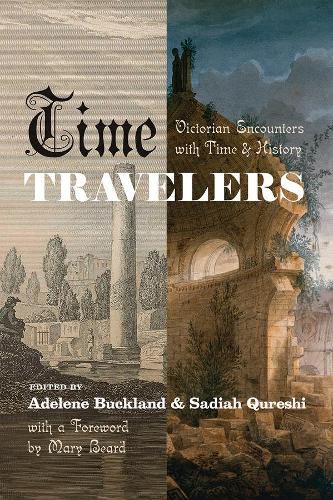Readings Newsletter
Become a Readings Member to make your shopping experience even easier.
Sign in or sign up for free!
You’re not far away from qualifying for FREE standard shipping within Australia
You’ve qualified for FREE standard shipping within Australia
The cart is loading…






The Victorians, perhaps more than any Britons before them, were diggers and sifters of the past. Though they were not the first to be fascinated by history, the intensity and range of their preoccupations with the past were unprecedented and of lasting importance. The Victorians paved the way for our modern disciplines, discovered the primeval monsters we now call the dinosaurs, and built many of Britain’s most important national museums and galleries. To a large degree, they created the perceptual frameworks through which we continue to understand the past.
Out of their discoveries, new histories emerged, giving rise to fresh debates, while seemingly well-known histories were thrown into confusion by novel tools and methods of scrutiny. If in the eighteenth century the study of the past had been the province of a handful of elites, new technologies and economic development in the nineteenth century meant that the past, in all its brilliant detail, was for the first time the property of the many, not the few. Time Travelers is a book about the myriad ways in which Victorians approached the past, offering a vivid picture of the Victorian world and its historical obsessions.
$9.00 standard shipping within Australia
FREE standard shipping within Australia for orders over $100.00
Express & International shipping calculated at checkout
The Victorians, perhaps more than any Britons before them, were diggers and sifters of the past. Though they were not the first to be fascinated by history, the intensity and range of their preoccupations with the past were unprecedented and of lasting importance. The Victorians paved the way for our modern disciplines, discovered the primeval monsters we now call the dinosaurs, and built many of Britain’s most important national museums and galleries. To a large degree, they created the perceptual frameworks through which we continue to understand the past.
Out of their discoveries, new histories emerged, giving rise to fresh debates, while seemingly well-known histories were thrown into confusion by novel tools and methods of scrutiny. If in the eighteenth century the study of the past had been the province of a handful of elites, new technologies and economic development in the nineteenth century meant that the past, in all its brilliant detail, was for the first time the property of the many, not the few. Time Travelers is a book about the myriad ways in which Victorians approached the past, offering a vivid picture of the Victorian world and its historical obsessions.